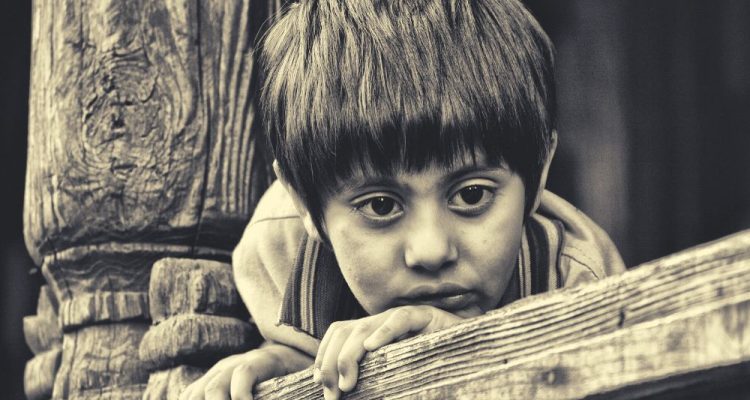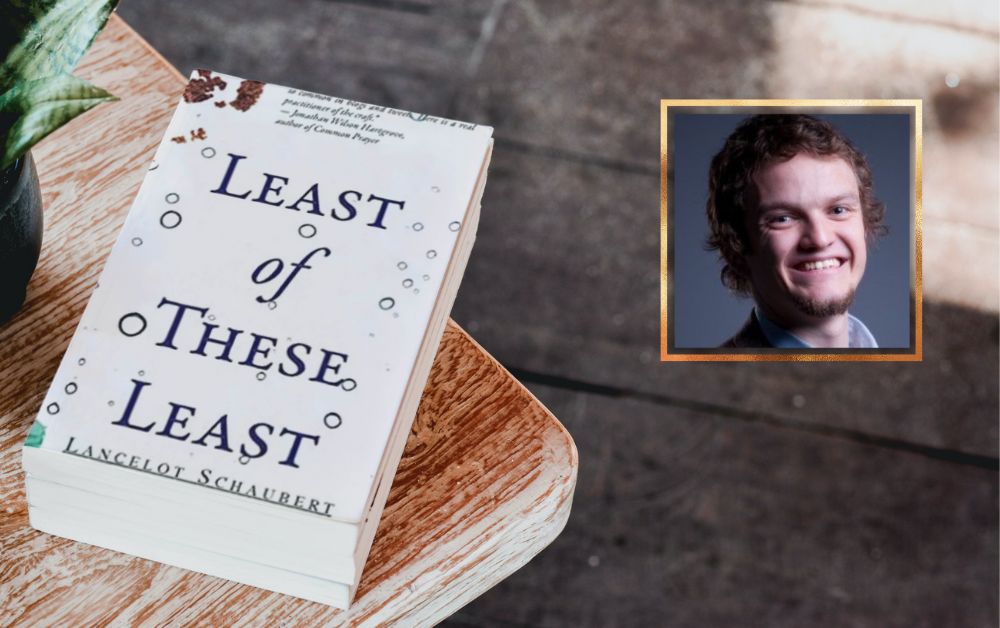St. Paul said if a man does not work he will not eat. Yet Jesus fed the five thousand for free. How do we square those?
Well for starters, the implication of having fed the five thousand indiscriminately (they returned again and again to Jesus for more food, so indiscriminately that it was something like ten to twenty thousand with women and children) shows that he gave bread and loaves to those hungry least deserving of a free meal. And then turns and tells us to do the same is to give food to him.
It seems a solidarity… no, a sympathy… no, an empathy… no: a compassion exists between those who suffer in any form and Jesus. Suffering is so qualitatively evil — being and existence so qualitatively good — to feed the hungry, any hungry, is to expand upon God’s primitive creative act, to participate in incarnation, to root on the sustaining presence of the Holy Spirit. At that Holy Spirit’s entrance into the Creed my bride tends to shout like a little girl, “THE LORD! THE GIVER OF LIFE! WHO PROCEEDS FROM THE FATHER AND THE SON! WHO WITH THE SON IS ADORED AND GLORIFIED! WHO HAS SPOKEN THROUGH THE PROPHETS!” To feed the hungry, any hungry, roots out the qualitative evil of hunger: of non-being manifested in starvation. Even fasting holds no permanence in and on the human soul, for we use it merely to tame our restless gluttony, the hunger at the opposite end of the culinary spectrum as any bulimic worth his salt knows. Gluttony is an others-consuming hunger. Anorexia, the self.
So who are the least among the hungry?
Those who have every reason to be full.
And yet Jesus says if you feed the least hungerer, you feed Jesus.
Why?
When The Son identified himself with man, he took on “whatever death the Father wished to send him with all its anguish, pain, and sorrow.” From hunger in the desert to the “I thirst” on the cross, to Rich Mullins’s line — he did not have a home: there were places he visited frequently, took off his shoes and scratched his feet cause he knew that the whole world belonged to the meek so he did not have a home — Jesus knows the five worst pains. Exposure. Starvation. Dehydration. Illness. Imprisonment. They say, ultimately, that everyone dies from asphyxia: lack of air to the brain. There’s really five ways to be strangled: a lack of sugar and protein to convey oxygen to the brain, a lack of fluids to do so, an exposure so that raiders or beasts or the sun take more from your brain than you can put back in, a foreign body taking over yours (think: zombie virus), or — the worst — other humans take the breath of God from your dust.
The sin of Cain.
And that’s the key: over and over again, these five acts, five abyssal states, stand in wholehearted opposition to the Creator and Sustainer and Author of Life. If you, through passivity or activity, increase hunger, thirst, exposure, sickness, and exile, at all, Jesus says you’re on team death.
Wrong team, pro-lifer.
Doesn’t matter if the person in front of you is on team death and deserves, both because of how they treat themselves and others, to die a brutal death. It seems that God made it clear through Jesus’s life that in the final estimation, we are not the sort of creatures who merely bodily die, but rather who bodily rise and live forever in newness of life.
Once you realize that, you stop sinning in order to delay death. Death entered the world, whereupon all sinned says Paul in Romans.
And that’s exactly how we treat people: they might expedite our own death — the specific death we fear with our own specific phobia — and we therefore sin against other sinners. Death increases and, with it, so increases the number of people desperate to ward off their inevitable demise and the demise of their everything. They end up adding yet more death. Death’s the root of every phobia. Fear of crowds is fear of death by stoning, heights of falling, spiders of biting, speeds of crashing, germs of… well… COVID. Or the Black Plague. And other diseases. With that fear and anger and shame comes sin to ward it off at all costs: if it’s between you and me, bub, I choose me. I look out for numero uno.
But Jesus does the opposite. He not only embraces his death and demise — his most consistent sermon was “I’m going to die. Young. And soon.” He put himself in positions where he knew others would take advantage of him. Did it anyways. That’s sort of the gist behind, “If someone asks you for a loan, give it. And don’t expect repayment.” Ever, he implies.
The word for that is a gift. A grant without the proper requisition form or grant writer. Grace.
Jesus knew he could set down his life and pick it up again as the first fruits of the resurrection. Jesus’s death and dying becomes not something to merely accept after the stages of grief. It moves beyond Kübler Ross to become one more tool in Jesus’s arsenal for gracing the world with his presence. He doesn’t mind dying, illness, sleeping rough, fasting, thirsting, or being imprisoned for someone else to have life, bed, food, water, freedom.
Anyone else. Yes, that anyone, the one person you wish didn’t count in the category “brotherhood of man.”
Are there systemic problems and addictions that might need more long term solutions?
Fascinating question. I’ll do you one better:
Does the previous question cut out the heart of the giver? Does the question “when does helping hurt?” make it any less good to give to the most hungry or the person who deserves food the least? Can that very question corrupt the heart of the doer, the giver, the donator, the sacrificer so that they can’t let go of, say, thirty pieces of silver or some expensive perfume?
In short: did practical questions corrupt Judas?


